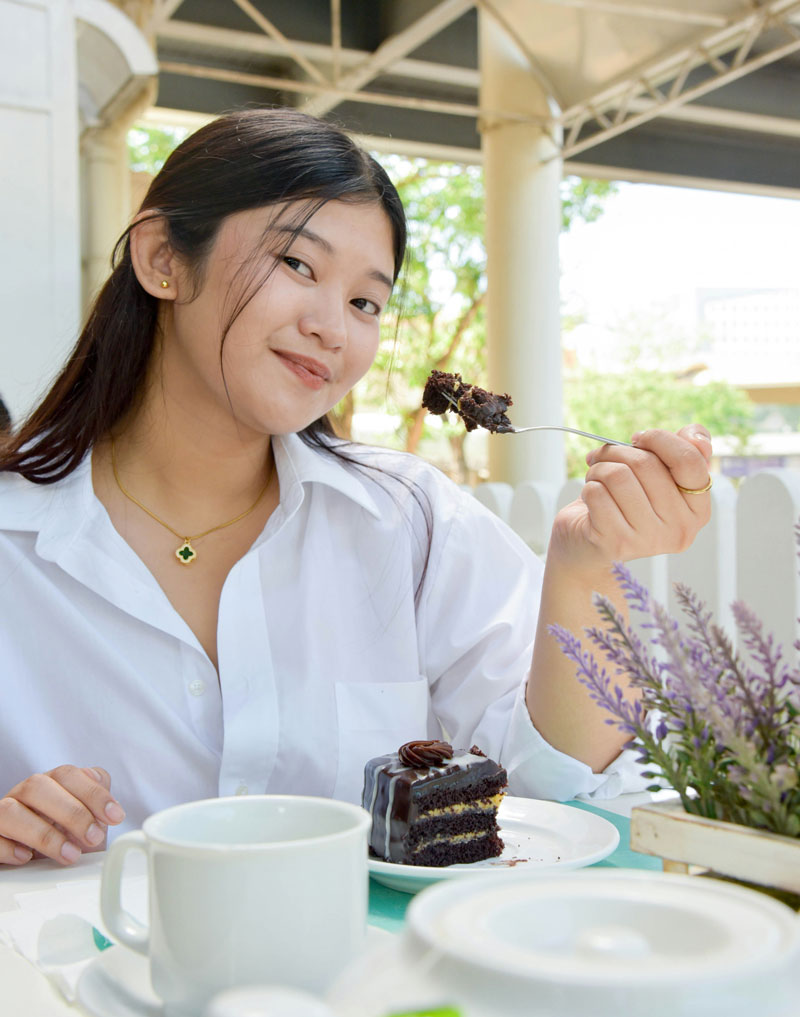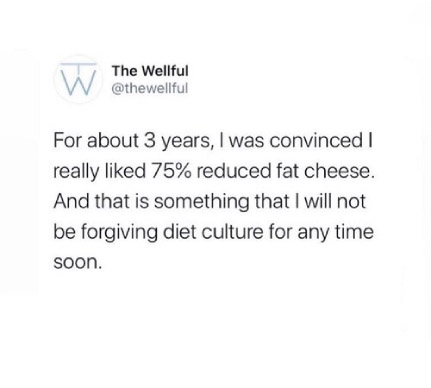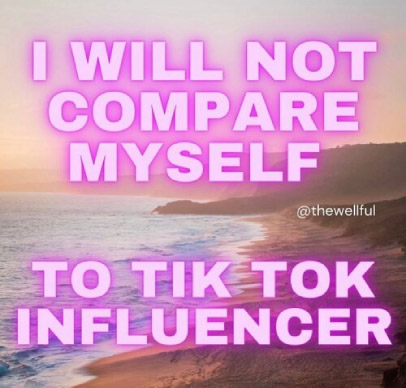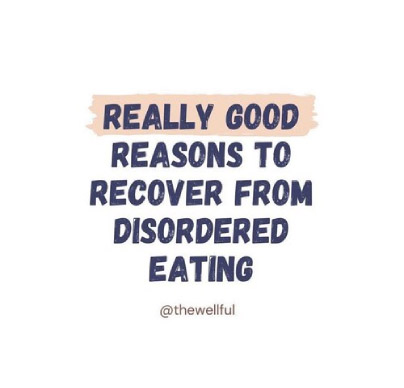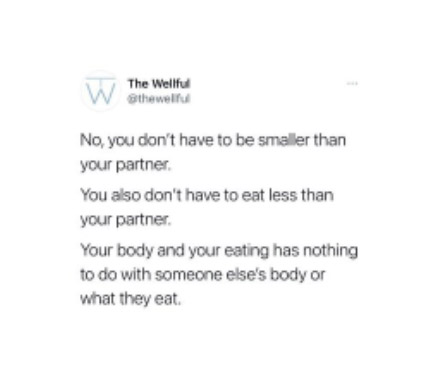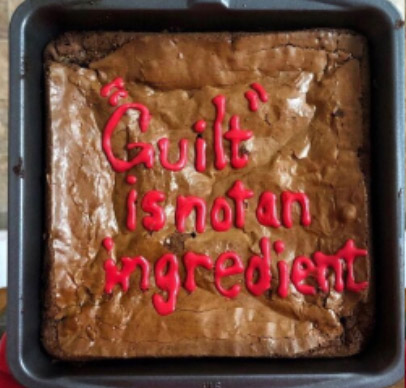Food noise or food thoughts on the brain? Is it totally normal or a sign that something is wrong? While it’s totally normal to think about food now throughout the day for planning meals, feeling excited about trying a new restaurant or feeling hungry for lunch, there is a difference between looking forward to eating and trying to navigate disordered food thoughts. For those experiencing disordered eating however, disordered food thoughts could be taking up valuable brain space in a way that does not feel good.
What is food noise?
The term ‘food noise’ is becoming increasingly popular. Food noise is defined as those loud, consuming, disruptive, thoughts, worries or calculations that you might be making about food or eating choices throughout the day. You might not be able to remember a time when food noise didn’t take up most of your brainspace, and it can be difficult to know just how disruptive those thoughts are to your day-to-day activities if it’s been your norm for a while.
In initial sessions with new clients, I’ll often ask how much of their day is spent thinking about food or food choices. Since we all need to eat every day, multiple times a day, we are all going to think about food at least some of the time. But if you’re spending more than 20-25% of your day thinking, planning, tracking, worried about food, is a lot of mental and emotional energy and it may be a sign that you might want to reevaluate your relationship with food.
In the meantime, there are certain actionable ways you can respond to disordered food thoughts in real time. Knowing what these are and how to work them into your everyday life could become a major asset in your toolbox for eating disorder recovery.
If you’re thinking…
“I don’t really need to eat today because I’m going out to a big dinner later.”
Respond with this:
Acknowledge: That’s simply not true because that’s not how bodies work. One thing does not necessarily have to do with the other. Restricting your food intake during the day will likely make you irritable, hangry (hungry-angry), low-energy, and could lead you to feel out of control around food later on. None of these sound like good ways to feel when you’re going out to dinner.
Reframe: After you’ve acknowledged that you’re experiencing the pressure to restrict to “save up your calories” for your meal later, the next step is to reframe your thinking. Remind yourself that it won’t feel good to do that. By eating regular meals and snacks, you’ll prevent yourself from getting hangry and will be able to stay present during the meal.
If you’re thinking…
“OMG I hate that picture I just saw of myself! I’m going to start a new diet tomorrow.”
Respond with this:
Acknowledge: Yes, it’s hard to see a picture that stirs up body image and food thoughts. That’s real and it’s important to acknowledge how hard that is. Sometimes seeing a picture that makes you feel like that puts you back in the moment of how you were actually feeling at that time.
Reframe: Once you’ve held space for your feelings in that moment, the next thing to do is to challenge the conversation that has started in your head. Saying, “I don’t like this picture,” is fine but remind yourself that punishing yourself for a photo is also not something you like. Take a break from looking at the photo and do something else that makes you feel more comfortable.
It could also help to add in some context. What else can you notice about the photo, aside from yourself? Are there other people in the picture? Are they smiling and laughing, having a good time? Were you having a good time? What was the lighting, scenery, or atmosphere like? Also, what else was going on in your life at the time of the photo? Our lives don’t exist in a vacuum, but pictures can often make it seem like they do. Everything is contextual, just remember that.
If you’re thinking…
“I should order the lowest calorie thing on the menu so I don’t feel guilty after eating.”
Respond with this:
Acknowledge: I’m having restrictive food thoughts right now and I don’t want to act in harmful ways towards yourself because of them. While choosing the lower calorie food right now feels like what I want, I also know that these thoughts come up most when I’m thinking of challenging my disordered eating and supporting my recovery.
Reframe: Rather than immediately opting for the lowest calorie item on the menu, pause and get curious. Will that option give you enough energy or make you feel satisfied? If not, look for something that sounds satisfying, satiating, and prioritizes your recovery.
Something else to note in the context of food choices is that there may be times when we feel uncomfortable after eating. Sometimes we eat past the point of fullness and sometimes a food doesn’t sit just right. That’s okay; this happens when we are establishing regular food patterns, familiarizing ourselves with fullness and can be part of building up awareness of how your body feels after different meals.
If you’re thinking…
“This shirt is tight so I shouldn’t eat all of my lunch today.”
Respond with this:
Acknowledge: It is super frustrating to feel uncomfortable in your clothes. Wearing clothes that are tight or don’t fit properly may make you feel more body-conscious of your body and could make you want to restrict.
Reframe: How your clothes fit is not a good indicator of how much you need to eat. No matter how your clothes fit, you still need to eat! One thing has nothing to do with the other and your body still needs a full lunch.
If you’re in the midst of eating disorder recovery or just find that disordered food thoughts tend to pop up when you wear tight clothes, it may help to wear things that fit a little looser just for the time being. Remember, if we wore shoes that were too small we’d think about our feet all day – the same goes for clothes that pull or feel tight.
Nutrition therapy is a process that involves learning more about yourself and your relationship with food. If disordered food thoughts are taking up too much of your time, energy, and brain space, it may be worthwhile to explore working with a registered dietitian like myself.
The Wellful is here to be your partner and personal cheerleader for combatting food thoughts. To get started, schedule a free 15-minute consultation with me (Brenna, RD) or give us a call at 925-725-2761. Let’s quiet the food thoughts and start living loud and proud.

